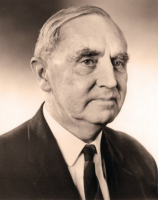










Alec Harley Reeves (1902 - 1971) was a British scientist best known for his invention of pulse-code modulation (PCM). He was awarded 82 patents.
Early Life and Career
Alec Harley Reeves was born in Redhill, Surrey. After winning a scholarship to the City and Guilds Engineering College in 1918 he undertook postgraduate research at Imperial College London in 1921.
He joined the International Western Electric Company in 1923, where he and his colleagues were responsible for the first commercial transatlantic telephone link. While working in Paris he realised the potential of pulse-code modulation for reducing noise during long-distance telephone calls, and patented the idea. The technology was not used commercially until the 1950s, however, since it was not cost-effective before valves were replaced with transistors, although it was used during the Second World War to provide secure connections such as the one from Churchill to Roosevelt.
When France was invaded in 1940, Reeves escaped back to England on a coal ship from Spain. Although a committed pacifist, he recognised the need to defeat Hitler and joined the Royal Aircraft Establishment, where he helped to develop countermeasures against German radio navigation.
He later moved to the Telecommunications Research Establishment, where he contributed decisively to the outcome of the war by inventing the OBOE night navigation system, the first remote-controlled bombing device to be installed in aircraft, which provided the accuracy to allow a British plane to drop a bomb within 50 yards of its target from 30,000 feet in total darkness. OBOE played a crucial part in the destruction of the factory that produced most of Germany’s steel and weapons in 1943, and prior to D-Day 9 out of 10 of the heavy guns that could have destroyed the invading Allied forces.
After the war Reeves worked at the Standard Communication Laboratories, pioneering semiconductor devices to improve communications. He was one of the first to investigate the potential of light in this area and came up with the idea of using glass fibres. In the 1960s he led the team that developed the first practical fibreoptic system to communicate large quantities of information.
Reeves was described as the ‘father of the information age’, and was awarded the Stuart Ballantine Medal in 1965 and the CBE.